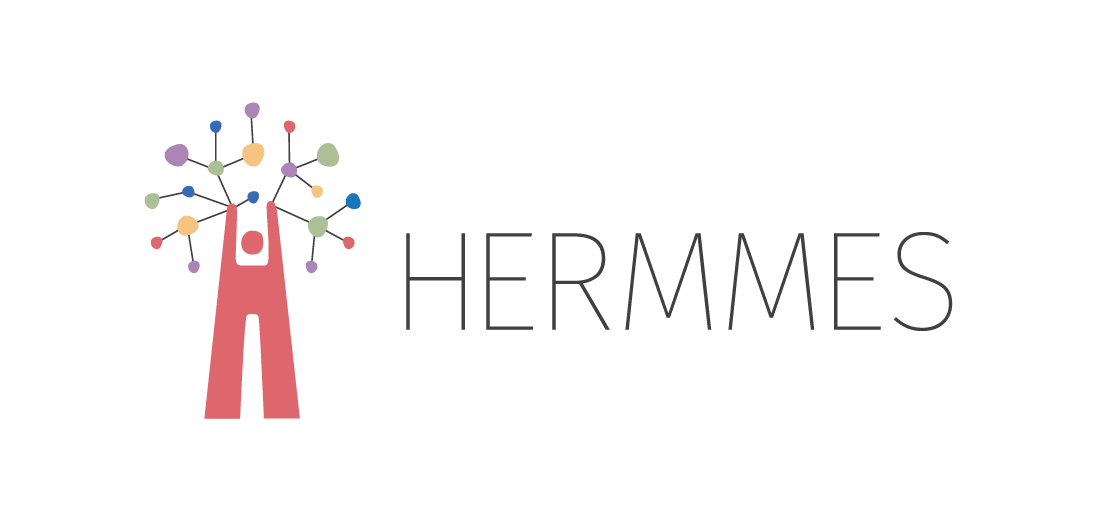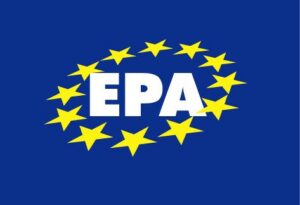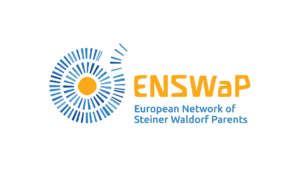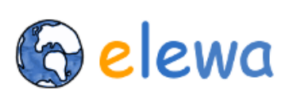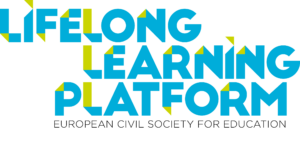PARTNERS
The HERMMES project is built around strong cooperation between a diverse group of project partners: parents, teachers and researchers have joined their resources, and aim to work towards helping children and youngsters become resilient and media mature citizens who can make their own informed choices on HOW they use digital technology.
The Project gathers 15 partners (11 full, and 4 associated partners) in the field of education, including international associations, national school associations, universities and schools.
- ECSWE
- IASWECE
- EPA
- SFF
- ENSWAP
- Scuola Novalis
- Wittering.nl
- Freie Hochschule Stuttgart
- Alanus University
- Federatie Steinerscholen
- ELEWA
- LLLP
- ELIANT
- R. Schmidt
- L4WB
The European Council for Steiner Waldorf Education (ECSWE) consists of 27 national Steiner Waldorf school associations representing 827 schools and 178.000 pupils in 28 European countries both EU and non-EU. The organisation is funded by contributions of the members which are calculated based on pupil’s numbers in the member countries. Each national association appoints a representative linking their organisation and ECSWE. ECSWE is represented and managed by a board that is elected every three years by the representatives during the General Assembly. The ECSWE office has two full-time staff, including the managing director, and three part-time staff, one of whom is responsible for Erasmus+ projects.
The purpose of ECSWE is to strengthen and develop Steiner Waldorf education in its member countries, to facilitate exchange of experience, to promote mutual support among its members and to conduct advocacy for better quality in education, freedom of curriculum and assessment, and freedom of choice of schooling.
ECSWE stands for education including physical, mental, and spiritual dimensions. The organisation promotes the protection and well-being of childhood and aims at building up better educational practices for all children and young people. In this respect ECSWE works in active partnership with other stakeholders concerned with holistic education.
ECSWE is the coordinator of the HERMMES project.
IASWECE is a nonprofit organisation with a registered seat in Dornach/Switzerland. IASWECE consists presently of 36 members which are country-associations based in Europe and beyond. The members are represented in the IASWECE council by an appointed representative. The goals of IASWECE are among others to
- Foster cooperation among colleagues throughout the world, through meetings, conferences, working groups, etc.
- Deepen and renew the work with the young child out of the sources of Waldorf education, and support its quality
- Foster training and continuing development opportunities for caregivers, kindergarten teachers and educators
- Undertake and support collaborative research on contemporary questions regarding the care and education of the young child
- Collaborate with parents, other educators, and the wider society about the needs of the young child
The International Association is active wherever colleagues work together on behalf of our shared ideals for the development of the young child. Responsibility for the association’s activities is shared among its council, coordinating group, board, and working groups and committees.
The International Association for Steiner Waldorf Early Childhood and Care is a full partner in the HERMMES project.
EPA has been the only EU-level organisation representing parents as a stakeholder group in education since its foundation in 1985. Through its 30+ member organisations they have a nearly full coverage of Europe, having a working contact with almost all EU-member states, while also having members from some non-EU countries (e.g. Serbia, Ukraine, etc.).
The main objectives of EPA, reaching out to 150 million European parents, are:
- to promote and advocate for the active involvement of parents as primary educators at all stages of the education of their children
- to support parents’ associations and individual parents for stakeholder involvement in different European countries by offering opportunities for training, cooperation and exchanging information
- to support the highest possible quality of education for all children in Europe especially by active involvement in EU-level policy development and assessment
- to disseminate relevant European information among its members
EPA has a working board of directors of 7 members coming from different countries which cover the geographical width and breadth of Europe. It employes a part time administrative assistant and a number of experts among our members and beyond whom we can call to help with expertise when it comes to projects, keynotes for our events, peer-teaching and -learning.
As the only representative association of parents on EU level EPA has worked closely together with other stakeholder groups as well as with different EU-institutions and political groups. As stakeholder involvement is in the meantime a well-established part of official EU policies, we will continue to work in line with the European Education Area, the Digital Education Action Plan, the Skills Agenda and Pact for Skills, the Agenda 2030 as well as the European Green Deal by taking part in working groups, alliances and other available forms to formulate the contents of the parental involvement as well as supporting our members in their national and regional level work for involvement in their home school systems. In order to boost participation and commitment, EPA is continuing its cooperation with EU institutions and relevant policy makers to shape involvement on national and local level for the necessary frameworks to be set up in countries where parental involvement is not yet part of educational governance.
EPA has started discussions with its members regarding digitalisation and in particular the internet use back in 2014 when it issued its first position paper on the topic calling upon parents to engage in shaping the digital development rather than refusing to acknowledge its future importance.
Starting from this position paper EPA engaged in a first European project called “Parentnets” (http://www.parentnets.com) together with cooperation partners from Spain, Ireland, Portugal and Romania to establish an online game, video clips and an interactive handbook to make parents aware of six major concerns, cyberbullying, online gaming and phishing among others and offer advice on how to deal with these issues.
In 2020 the annual theme of the organisation was “Parenting in the Digital Age” adopted at a GA back in 2017 in the framework of a three-year working plan. It couldn’t have been more timely given the impact of the health crisis on the educational sector, specifically the closure of school buildings worldwide and the shift to remote teaching and learning, in many cases online. During this period the importance of media and digital literacy became evident to everyone and surveys and studies have been conducted in many countries to find out how to best support learners (pupils and students) but also teachers and trainers as well as parents and families in the common endeavour to keep the learning and evaluation processes going.
In this situation EPA’s involvement in a specific project “Media Literacy for Parents” is of particular interest. The project developed training materials for parents, a WebApp with 400+ activities and a Guide for Parents all of which can be found on the project’s website in the languages of the project partners: Bulgarian, French, Greek, Italian, Polish and English.
The European Parents’ Association is a full partner in the HERMMES project.
The Steinerskolenes Foreldreforbund exists since 1987, as a result of cooperation between parents and teachers that led from zero to 85 % state funding of private schools in Norway.
All parents are members through their parents’ association at their Steiner Waldorf school. Since there is about 5000 Steiner Waldorf pupils in Norway, there is about 8000 members of the parents’ association. Each family pays a participation fee of ca. 35 euro a year.
The association is led by a board, where members are parents from different schools, and the board members rotate every third year. The association’s manager is its full time employee, while the board leader is employed on a part-time basis.
Main goals:
- Cooperation and commitment for the benefit of children
- Cooperation with school federation to get laws and frames that fits Steiner Waldorf pedagogical ideas
- Cooperation with school federation on governmental acceptance for Steiner Waldorf curriculum
- Pressuring the Steiner school federation to help schools make a ”least common multiple” in managing and organising schools to avoid conflicts between parents and teachers
- Helping local school parents, teachers and managers with organising issues, and communication challenges between parents and teachers/school
- Supporting class parents’ groups in the communication challenges between parents themselves, or between parents and school/teachers
- Helping parents who have problems related to their child, either on bullying by other children, or other reasons for lack of security or lack of quality at the school
- Challenging Steiner school federation and Steiner college university on issues that parents want to develop, like organisational skills, managing skills, assessment or a green school profile
- International parents’ cooperation through ENSWaP
The Steinerskolenes Foreldreforbund is a full partner in the HERMMES project.
ENSWAP is an informal global network for Steiner Waldorf parents and friends. It was established in May 2007 and since serves as a connecting forum for supportive parents who wish to have a deeper understanding of the pedagogy as practiced in the schools, as well as wishing to feel connected with other parents and teachers across the world.
All the administrative work of the coordinators is done on a voluntary basis and involves organising annual conferences, creating a web presence, publishing a newsletter and assisting schools in developing greater consciousness of community at both local and national levels. The regular activity of the network is the bi-monthly webinar – The ENSWaP Hour, where teachers are invited to address the issues around their schools, the Covid pandemic and its effect on their children. The ENSWaP’s mission statement espouses the hope that through working together internationally in the best interests of our children we are also working towards a more peaceful and tolerant society and a more sustainable world.
The last five years the theme of healthy media education was the most often raised issue in all the parents’ gatherings and communications. The ENSWaP’s 2018 conference “Growing up human in the digital age” in Bologna also tackled these issues and had many follow-up meetings. The parents’ perspective on the issue, their needs and suggestions to the education professionals lies in the core of this project. Thus, the European Network of Steiner Waldorf Parents is a full partner in the HERMMES project.
The Scuola Novalis lies in the Veneto region of Italy near Conegliano. Founded by the pedagogical association “La Cruna” in 1996 as a kindergarten, Scuola Novalis opened the lower classes in 1997 and the upper secondary school in 2013. It has 360 pupils from ages 3 to19 and over 40 teaching staff, including kindergarten and special needs educators. The Scuola Novalis is fully state recognised. The kindergarten has three mixed-aged classes and the school, from primary to upper, has one class for each grade, with class sizes of approximately 22-27 pupils.
Steiner Waldorf pedagogy conceives of a continuous 12-year educational programme. However, following the compulsory state exam in Grade 8, despite the educational continuity there is a certain turnover of pupils at entrance to the upper school (Grades 9 to 13). This enables motivated students coming from other schools to benefit from the vacancies and sign up for the innovative upper school programme of the Scuola Novalis.
The upper school offers two strands: organic and biodynamic agriculture and bio-ecological building and eco-sustainability. The holistic curriculum moves between the core subjects of general studies, including the arts and sports, and the technical vocational activities of the two strands. The choice to develop these innovative strands took into account local history, culture and traditional areas of work, together with the recent rise of an ecologically aware society.
These 5-year technical-vocational courses lead to the final State Diploma, which permits access to all forms of tertiary education, as well as constituting a vocational certificate for direct entry into the labour market. The database of the paths our alumni take after leaving school show a very wide and varied choice, ranging from the complete spectrum of university faculties, higher technical institutes, academies of music, art and drama, to areas of work connected with their school study strands. Increasingly, our students opt to take a year out, choosing to do voluntary work or interim jobs whilst travelling in different countries and continents, before making a definite decision about their future.
The school takes a comprehensive approach to media literacy, assuring the pupils a sound competency in analogical media before introducing digital and information technology. Thus, from the kindergarten onwards through all grades of schooling, great emphasis is placed on practical and artistic activities, which are also used as support in teaching core curriculum and technical subjects, as well as for digital media education. The timetable dedicates several hours a week to painting and modelling, music, crafts, physical education and eurythmy in all grades, considering these subjects to be the indispensable basis that underpins the development of all the faculties of the human being, in a holistic approach to education that takes into account all aspects of the child’s development.
Scuola Novalis is a full partner in the HERMMES project.
Wittering.nl is an organisation for day-care and education. From this year, we have also made a start with secondary education in addition to primary education. There are a total of 40 paid employees working in the organisation. Most employees work part-time.
Wittering.nl is distinguished by a contemporary vision on learning and upbringing. The curriculum is based on Gestalt learning, which is shaped by core concepts. Furthermore, Wittering.nl is a values-driven organisation, and leadership is provided according to the idea of distributed leadership. In this project two employees will participate.
Wittering.nl has its own view on following and supporting children in their development. For this we use an e-portfolio. In this digital portfolio, both children and teachers can follow the development of children by, among other things, adding photo and film material of the development process that children go through. Moreover, assignments are also included in this portfolio in which children can work together.
Teachers and peers provide feedback on their activities and learning outcomes, which are also included in this portfolio. We would like to learn more about blended learning and see if we can optimise the digital learning environment for the children.
Moreover, we want to give children more space to develop digital skills. Naturally, we also believe it is important that children develop responsibility and learn to deal with all media that are available to them with integrity. How can we as a school prepare children for a world in which social media is a part of their lives and know how to deal with it properly?
The Wittering.nl is a full partner in the HERMMES project.
The Freie Hochschule Stuttgart (eng. Seminar for Waldorf Pedagogy or Waldorf Teachers College) is a fully accredited college where teachers for Steiner Waldorf schools have been trained for more than 50 years. The Freie Hochschule Stuttgart offers six accredited courses in Waldorf teacher education (both full-time and part-time), as well as programs for continued professional development. Currently about 450 students and trainees are enrolled.
The von Tessin Chair for Media Education was founded in 2018, as the department dedicated to media education development. It offers pre-service courses in media education, as well as a two year in-service program for teachers. It is also responsible for a wide range of research projects in this field.
The Freie Hochschule Stuttgart is a full partner in the HERMMES project.
The Alanus University of Arts and Social Sciences was established in 1973. The University focuses on holistic education with currently more than 1900 students. The University offers several Bachelor and Master programs, doctoral studies and interdisciplinary research programs.
As a state-recognised University of the Arts courses such as fine and performing arts, architecture, art therapy, education, business and philosophy are offered. The unique combination of science and art enables students to broaden their horizons in interdisciplinary perspectives. Media education and media literacy are a central part in the curriculum in the courses offered in the department of education, with the aim of encouraging a critical and differentiated view on media education in childhood and school life in the digital age.
The Alanus University of Arts and Social Sciences offers media pedagogy in B.A. and M.A. Studies in practical and theoretical modules, led by Prof. Dr. Paula Bleckmann and her team since 2015.
The Alanus University is a full partner in the HERMMES project.
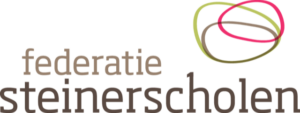
The Federation Steinerscholen provides pedagogical guidance service for its 18 schools for primary education, spread across 23 locations, of which one is for special education, and 3 schools for secondary education, spread across 10 locations, of which one is for special education. On 1 February 2020, these schools together had 5400 pupils.
The Federation supports the schools in the realisation of their own educational project, by various means:
- provision of training activities for teachers and school directors,
- distribution of guidelines and background information,
- translation of pedagogical and didactic brochures,
- coaching, especially for the implementation of innovative practices or new aspects in the curriculum,
- professionalising the quality policy in the schools.
Our own staff consists of 2 FTE financed by the Flemish government and 1,5 FTE of (wo)manpower enabled by the associations of schools.
During the last years, the guidance service has realised a variety of projects in order to support the media education in Flemish Steiner schools:
- published documents for school leaders (‘Inspiration for a media concept at school’), teachers (‘Media education in steiner schools, translation of a German publication by the German Bund der Freie Waldorfschulen’) and parents (‘Children and the media: a guide for parents’, translation of a German publication by Media-Protect),
- delivered lectures for teachers and parents about the importance of well-balanced media activities, both with analogue and digital media,
- provided workshops for teachers,
- coached projects in class, where pupils engage in media activities (‘Make connection: tell your (digital) story’).
Regarding the skills and expertise of the key persons involved in this project, we can mention the following:
- pedagogical experience as teacher in different subjects,
- pedagogic experience as trainer of teachers,
- school management,
- coordination of externally financed projects,
- communicative skills in four languages,
- study of the media related phenomena,
- use of media in cultural, artistic and didactical contexts,
- realisation of media-maturity-workshops for classes, with respect to media maturity,
- certificate as media coach (https://mediacoach.mediawijs.be/)
Why do we take part in the project?
- Media educational targets and the development of digital competences are important aspects of our training and guidance plan. International exchange will help us to broaden our learning community. Our expertise can be shared and will grow through dialogue with different partners.
- The guidance service of the Federation is closely involved with the design of new learning targets and curricula for the Flemish Waldorf schools (from kindergarten till the age group of 18 years old). The implementation of the curriculum asks for intensive coaching activities and dissemination of experimental results. Thus, together with representatives of elewa, ECSWE and IASWECE, we ran a pilot course on guiding children, young people and parents towards media maturity. This expertise can help to obtain the project results.
- The guidance service participates in relevant initiatives by the Flemish government, e.g. the i-Learn project (for personalised learning paths) and the research project on blended learning.
These affiliations help to have a broad view on the pedagogical and societal dimensions of the project topic.
The Federatie Steinerscholen is a full partner in the HERMMES project.
Elewa – eLearningWaldorf e.V. is a non-profit organisation that offers online and blended learning courses in the field of professional development of educators. It has one part-time paid member of staff (coordination, text production, lay-out) and four other non-paid team members, who contribute to courses and with material. Elewa also offers its platform for the use by other organizations for their own online learning programs. The platform currently has about 2270 registered learners.
In its eight years of experience with designing, creating, and offering online courses for adult education with material and courses structures, elewa is aiming at sustainable and deep learning experiences and practitioner research. Having been schoolteachers themselves, the staff members hold profound experience in the field of media education in school. Moreover, as teacher trainers they bring profound experience in adult education, in offline as well as online formats.
Through working in this project, elewa aims to contribute to a European exchange and cooperation in the important area of digital learning, addressing all levels of educators as well as parents. With its expertise, elewa wants to contribute and at the same time deepen what it can offer to people who are interested and active in the educational field. Finally, it aims for widening the network on the elewa platform in order to intensify an ongoing and lively dialogue between all the partners in children’s education.
The elewa-eLearningWaldorf e.V. is a full partner in the HERMMES project.
The Lifelong Learning Platform promotes a Europe-wide cooperation among civil society organisations in order to voice citizens’ concerns on lifelong learning issues, and to propose concrete solutions, based on the expertise, competencies and experience of its networks, for lifelong learning to become a reality for all. By bringing together actors from all sectors and levels of education and training, the Platform contributes to an increased flexibility between systems. Their aim is to share knowledge.
They have been involved in several EU-funded projects related to digital literacy and media education for all age groups, and through years of experience in advocacy, policy and project outcomes, LLLP and its members have positioned themselves as leaders in addressing the digital transition through learners’ needs. Through their experience, the project can grow further. LLLP supports the objectives of this project, and they are going to help with dissemination of its activities and results.
The Lifelong Learning Platform is an associated partner to the HERMMES project.
The European Alliance of Initiatives for Applied Anthroposophy brings together 10 actively engaged European umbrella organisations working in different fields of anthroposophy. As a civil society organisation since 2006, ELIANT has been campaigning to improve quality of life, human dignity, freedom and cultural diversity across Europe and worldwide in all spheres of life – and is especially concerned to ensure that the availability of choices for valuable products is maintained.
ELIANT carries out various activities, in line with its mission to promote holistic and ecologically sound projects and initiatives by:
- Engaging in social, cultural, and political discussions in the EU.
- Supporting the cultural initiatives arising from anthroposophy including Steiner/Waldorf education, biodynamic agriculture (Demeter), Anthroposophic Medicine and therapy, curative education and social therapy.
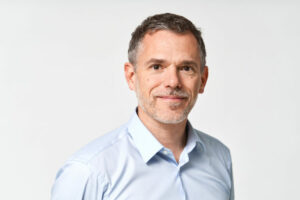
Robin Schmidt, PhD Researcher and teacher educator, studied philosophy and cultural history, then educational science with a focus on adult education and philosophy as a teaching subject. His doctorate was in educational science on teacher education in the digital age. Between 2003 and 2019 he was the director of the “Forschungsstelle Kulturimpuls”, a research centre researching cultural history of the 20th century. Since 2016 Robin Schmidt has been a researcher at the School of Education (FHNW) in Switzerland with a project on teacher education in the digital transformation. For his publications and references see here.
Robin has experience in matching curricula to the coverage of the European Digital Competence Framework for Citizens. He is going to support the curriculum team through this process.
Robin is an associate partner to the HERMMES project.

The Learning for Well-being Foundation (L4WB) envisions a world where everyone can reach their unique potential. It operates as a private foundation, registered in the Netherlands as a not-for-profit organization. Their team and associates are dispersed across Europe, the Middle-East, the United States and Latin America.
ECSWE has been working with L4WB on an Erasmus+ project since 2019 on personalised and formative assessment. They will help throughout the project with dissemination.
Learning for Well-being Foundation is an associated partner to the HERMMES project
